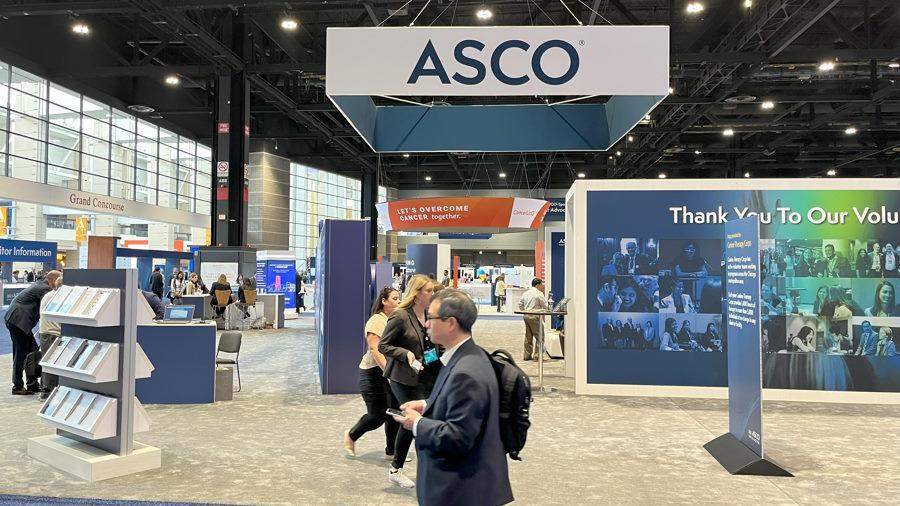ASCO: Vorasidenib shows its glioma potential in INDIGO

Servier’s vorasidenib has shown efficacy in the treatment of low-grade glioma – a notoriously hard-to-treat form of brain cancer – although safety data has taken some of the shine off the result.
At ASCO, the dual IDH1 and IDH2 inhibitor was shown to delay disease progression and death in grade 2 gliomas with IDH mutations, and also delayed the need for patients to undergo treatment with more toxic therapies compared to placebo in the INDIGO trial.
The study involved patients with grade 2 IDH-positive gliomas who had undergone surgery but no other treatment, with vorasidenib compared to placebo.
The headline news was that progression-free survival (PFS) more than doubled to 27.7 months compared to 11.1 months in the placebo group. At the data cut-off point, the median time to next treatment had not been reached in the vorasidenib arm, and was 17.4 months for placebo.
Lead investigator Ingo Mellinghoff of Memorial Sloan Kettering Cancer Centre described the result as “clinically meaningful, because patients diagnosed with grade 2 glioma with IDH mutations are typically young, otherwise healthy individuals.”
Moreover, treatment for glioma has barely changed in the last two decades, with current therapies associated with both short- and long-term toxicity. “The results of this trial offer a chance to change the treatment paradigm for this type of glioma and could bring the first new targeted therapy for low-grade glioma,” said Mellinghoff.
There was one red flag. however. Namely an increase in the liver enzyme alanine aminotransferase (ALT), which was the most common grade 3 or greater adverse event, seen in almost 10% of patients receiving vorasidenib, followed by aspartate aminotransferase (AST) increases seen in 4%.
There were no cases of ALT or AST elevations in the placebo group, and in two patients, the elevations were sufficiently severe to be considered potentially life-threatening. The liver enzyme increases were “manageable and resolved with appropriate medical attention,” according to Servier, but will likely be scrutinised in future regulatory filings for vorasidenib.
Overall, vorasidenib was well-tolerated, with patients reporting fatigue, headache, diarrhoea and nausea, and the liver risks will be balanced by the paucity of treatment options for low-grade glioma patients. Moreover, this group has a five-year survival rate of 40%-50%, but that goes down if the tumours have IDH mutations.
“Patients with brain cancer live with the constant fear of what their future looks like,” commented Brock Greene, founder of brain cancer patient organisation Oligo Nation. “Servier’s positive clinical trial data for a targeted therapy in IDH-mutant glioma that may possibly improve outcomes for patients provides this community with new hope that they have been waiting decades for.”
The French pharma group acquired vorasidenib as part of its takeover of Agios’ oncology business in 2021, which came with a $1.8 billion upfront payment and could top $2 billion if the drug fulfils its potential in glioma.
The drug already has a fast-track designation from the FDA, and Servier said it is “working to determine timelines” for a US filing.













